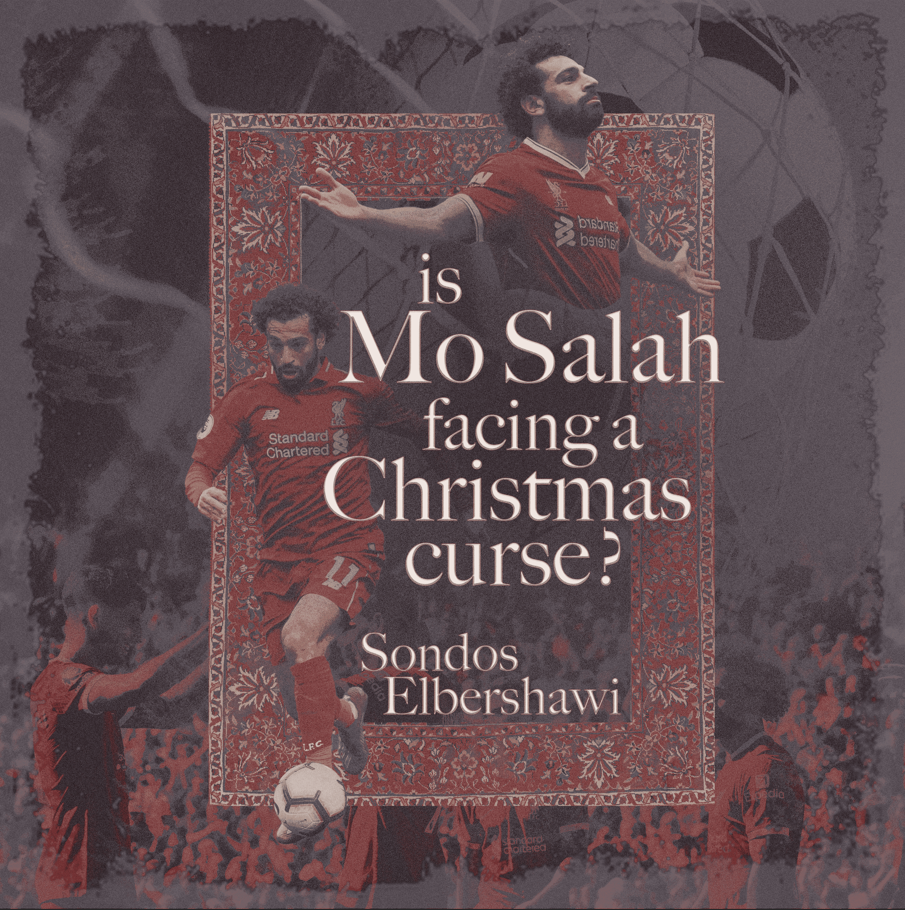“Kafir!” One Instagram comment reads. Another reads, “All here to see the curse.” Is it true? Could Mohamed Salah’s rough patch be a result of a Christmas curse? If so, what could this mean for his future?
Mohamed Salah is arguably one of the most revered faces in Muslim, Middle Eastern, and soccer communities worldwide. Salah, an Egyptian-Muslim player, belongs to Liverpool Football Club, and he holds the record as their highest-paid player in history and their highest-scoring current player.
In the Africa Cup of Nations 2023 (AfCoN), which is presently taking place, Mo Salah has been playing below the standard he had previously set for himself. In the tournament, he has struggled with assists and scored only one penalty shot, resulting in him not even being the highest scorer amongst the Egypt National Team (ENT). It is clear that Salah’s status with the Egyptian National Team is dwindling. In relation to fellow players Mostafa Mohamed and Omar Marmoush, Salah’s number of AfCoN goals, assists, and general salary awarded by the ENT to their players in AfCoN was comparable.
Salah took a backseat for the remainder of AfCoN due to injuries sustained during the tournament, baffling some fans at the unexpected decline in his playing ability. Prior to the beginning of AfCoN, Salah scored two goals and had one assist in one match alone when playing for his contracted Liverpool Football Club (LFC). His playing statistics for the LFC game alone reign supreme over his statistics in the entirety of AfCoN.
Some argue that Salah’s recent performance is the result of his “Christmas curse.” Salah is known as one of few public figures who is outwardly Muslim and unapologetic for his religion; he adopted this identity through his tendency to kneel in sujood (prostration) after a goal or match, ultimately showing his devotion and faith to God through this prominently Islamic practice.
Despite being so outwardly proud and expressive of his religion, Mohamed Salah also has a tradition of posting a Christmas tree each time the holiday comes around. Without fail, his fans and audience bombard him with hate and criticism each year.
The conspiracy follows that due to Mo Salah’s majorly Muslim followers being angered at his celebration of the non-Muslim holiday, Muslim fans’ duaas (prayers) have been negatively charged towards Salah, therefore tainting his performance.
A more plausible yet similar explanation could be that without the same support of his fans, whether in the stands of the stadium or Instagram comment sections, Salah is less motivated to play with the same grit and ability as he does when playing with LFC, whose fanbase consists of those that are not necessarily motivated to support the player solely on the basis of religion.
In fact, LFC fans were previously ambivalent towards Salah due to his outward display of religion, something that was not extremely common in the English Football League (EFL). It took Salah earning respect from the players through his outstanding football skills for the rampant Islamophobia previously directed at him and other Muslims in the U.K. to finally begin to dwindle. Rather than loving the religion and culture first and therefore loving the player due to his identity, LFC fans began to love the player and then grew to love the religion accordingly. As hate towards Salah proliferates from Muslim fans and in his home country for posting on Christmas, the negative effects on his performance become prevalent.
With the sustained injury, fans began to question Salah’s future overall. His contract with LFC ends in 2025, and there are currently no talks of extending it or him signing onto a new team. Mo Salah is also approaching his mid-30s, when most football players tend to retire and/or hit their peak by 30. However, concerns regarding whether his playing ability was stuck in decline were halted when Salah promptly returned to playing post-AfCoN in the English Premier League (EPL).
In a Brentford v. LFC game on February 17th, Salah made two assists and a goal of his own; in the entirety of the EPL, Salah contributed to a whopping 41% of his team’s total goals. He was, again, hit with scrutiny by ENT supporters for leaving AfCon to rehabilitate himself rather than heal and return to the tournament.
This brings us back to the question: if fans truly supported Mo Salah as a player rather than as a manner for gathering points and a reputation for the ENT, would they be dissecting him in the manner in which they do? There seems to be a clear difference between fans who support Salah for his playing versus those who support him for being a face for a Muslim and Arab team. While this, of course, is a valid reason to support a player, especially considering the scarce amount of representation Muslims have in Western media, it fosters a harsh environment for such a figure to prosper.
All in all, there seems to be a clear correlation between fan behavior and Salah’s playing performance. With the fate of his contract with LFC hanging in the balance, one can only hope that his playing and position as a revered Muslim figure are maintained.

